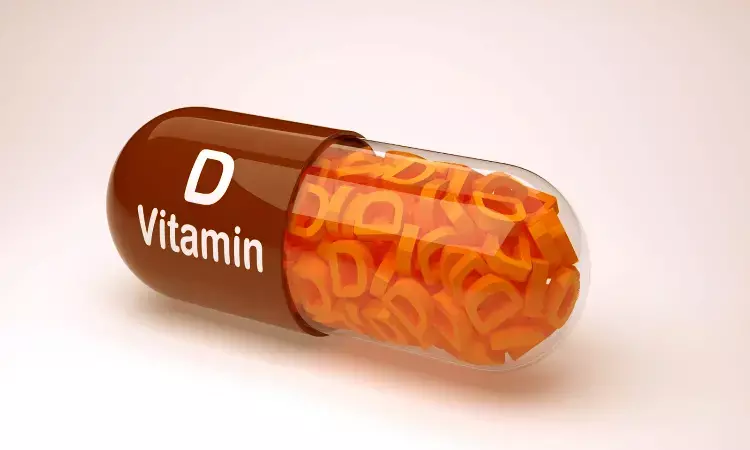- Home
- Medical news & Guidelines
- Anesthesiology
- Cardiology and CTVS
- Critical Care
- Dentistry
- Dermatology
- Diabetes and Endocrinology
- ENT
- Gastroenterology
- Medicine
- Nephrology
- Neurology
- Obstretics-Gynaecology
- Oncology
- Ophthalmology
- Orthopaedics
- Pediatrics-Neonatology
- Psychiatry
- Pulmonology
- Radiology
- Surgery
- Urology
- Laboratory Medicine
- Diet
- Nursing
- Paramedical
- Physiotherapy
- Health news
- Fact Check
- Bone Health Fact Check
- Brain Health Fact Check
- Cancer Related Fact Check
- Child Care Fact Check
- Dental and oral health fact check
- Diabetes and metabolic health fact check
- Diet and Nutrition Fact Check
- Eye and ENT Care Fact Check
- Fitness fact check
- Gut health fact check
- Heart health fact check
- Kidney health fact check
- Medical education fact check
- Men's health fact check
- Respiratory fact check
- Skin and hair care fact check
- Vaccine and Immunization fact check
- Women's health fact check
- AYUSH
- State News
- Andaman and Nicobar Islands
- Andhra Pradesh
- Arunachal Pradesh
- Assam
- Bihar
- Chandigarh
- Chattisgarh
- Dadra and Nagar Haveli
- Daman and Diu
- Delhi
- Goa
- Gujarat
- Haryana
- Himachal Pradesh
- Jammu & Kashmir
- Jharkhand
- Karnataka
- Kerala
- Ladakh
- Lakshadweep
- Madhya Pradesh
- Maharashtra
- Manipur
- Meghalaya
- Mizoram
- Nagaland
- Odisha
- Puducherry
- Punjab
- Rajasthan
- Sikkim
- Tamil Nadu
- Telangana
- Tripura
- Uttar Pradesh
- Uttrakhand
- West Bengal
- Medical Education
- Industry
Vitamin D regulates calcium in intestine differently than previously thought

A Rutgers study has discovered that vitamin D regulates calcium in a section of the intestine that previously was thought not to have played a key role. The findings have important implications on how bowel disease, including ulcerative colitis and Crohn's disease, may disrupt calcium regulation.
In a healthy person, the body absorbs calcium to maintain strong bones and perform other important functions like helping muscles move and nerves carry messages between the brain and body parts. Vitamin D is critical for this calcium absorption from the intestine and for the function of the intestine.
The study, published in the journal Molecular and Cellular Biology, highlights the importance of the distal segments of the intestine - including the colon - in vitamin D regulation of calcium and bone calcification. Previously, this regulation was thought to only occur in the proximal intestine, the first section of the intestine immediately beyond the stomach.
From the study, researchers also learned that a transporter of manganese -- an essential element that plays a role in many cellular processes -- was one of the genes most induced by vitamin D in both the proximal and distal intestine.
The study's lead author, Sylvia Christakos, a professor in the Department of Microbiology, Biochemistry and Molecular Genetics at Rutgers New Jersey Medical School, says these findings suggest that vitamin D plays other roles as well. "The findings suggest that vitamin D may have a role not only in calcium absorption, but also in the cellular regulation of other essential ions and in the function of intestinal stem cells," she said.
This research may lead to new strategies that can compensate for calcium malabsorption and increase the efficacy of intestinal calcium uptake to minimize bone loss due to bariatric surgery, small bowel resection or reduced calcium absorption after menopause or due to aging.
https://mcb.asm.org/content/early/2020/10/27/MCB.00372-20
Hina Zahid Joined Medical Dialogue in 2017 with a passion to work as a Reporter. She coordinates with various national and international journals and association and covers all the stories related to Medical guidelines, Medical Journals, rare medical surgeries as well as all the updates in the medical field. Email: editorial@medicaldialogues.in. Contact no. 011-43720751
Dr Kamal Kant Kohli-MBBS, DTCD- a chest specialist with more than 30 years of practice and a flair for writing clinical articles, Dr Kamal Kant Kohli joined Medical Dialogues as a Chief Editor of Medical News. Besides writing articles, as an editor, he proofreads and verifies all the medical content published on Medical Dialogues including those coming from journals, studies,medical conferences,guidelines etc. Email: drkohli@medicaldialogues.in. Contact no. 011-43720751


